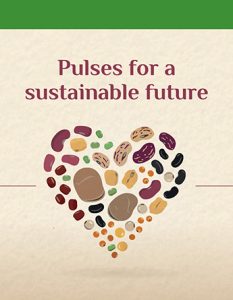Why a World Pulses Day?
Building on the success of the International Year of Pulses (IYP) in 2016 implemented by FAO and recognizing the potential of pulses to further achieve the 2030 Agenda for Sustainable Development, the United Nations General Assembly (UNGA) designated 10 February as World Pulses Day (WPD).
This celebration presents a unique opportunity to raise public awareness about pulses and the fundamental role they play in the transformation to MORE efficient, inclusive, resilient and sustainable agrifood systems for better production, better nutrition, a better environment, and a better life, leaving no one behind.
With the help of governments, the private sector, Members and partner organizations, the public and youth, FAO works to facilitate the observance of this international day and support the production and consumption of pulses as part of sustainable food systems and healthy diets.
 Pulses are the edible seeds of leguminous plants cultivated for both food and feed.
Pulses are the edible seeds of leguminous plants cultivated for both food and feed.